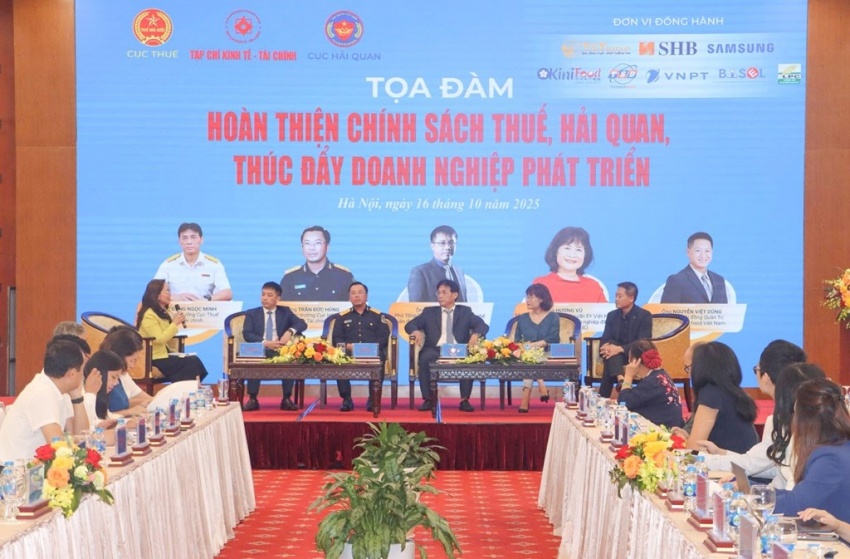INTERNATIONAL INVESTMENT
AND PORTAL
 The October 16 dialogue gathered, experts, and enterprises to discuss tax and customs reforms
The October 16 dialogue gathered, experts, and enterprises to discuss tax and customs reforms
At the event, deputy director general of Vietnam Customs, Tran Duc Hung, stressed that administrative reform and regulatory simplification remain top priorities. Since the Politburo's Resolution No.66-NQ/TW, Vietnam Customs has reviewed nearly 100 legal documents to amend, supplement, or scrap outdated provisions.
In 2025 alone, the agency has examined 214 administrative procedures and 29 business conditions. This review has resulted in proposals to simplify 39 procedures, to cut another 39, and to remove 15 unnecessary conditions.
The reform supports the national strategy on science, technology, innovation, and digital transformation. Vietnam Customs has introduced advanced rulings, post-clearance audits, risk management, authorised economic operator programmes, and compliance assessments. These tools encourage legal compliance while reducing clearance times and costs.
Hung cautioned, however, that simplification must be balanced. Excessive streamlining may undermine transparency and create loopholes. The drafting process also remains complex, despite the 2025 Law on Legal Normative Documents shortening timelines. Consultations often lack depth, leaving rules prone to obstacles once issued. For instance, Decree No.167/2025/ND-CP created difficulties in customs procedures for consolidated transit goods and border-crossing vehicles.
To address this, Customs has launched a project to reduce inspection rates. By 2026, it targets 70 per cent of shipments in the green channel (fast clearance), 25 per cent in the yellow channel (document checks), and no more than 5 per cent in the red channel (full inspection). These targets fit the Customs Development Strategy to 2030 of less pre-clearance checks, and more post-clearance audits. Digital customs is also being expanded, with automated systems applying risk management to detect violations across clearance stages.
Hung noted that achieving these goals requires digitising documents, shifting to post-clearance controls, and close coordination among clearance offices, warehouses, and production sites, all difficult amid staffing shortages.
Alongside customs reform, Dang Ngoc Minh, deputy general director of the General Department of Taxation, outlined flexible fiscal measures to support recovery. He stressed that taxation plays a central role in reducing costs, spurring innovation, and stabilising revenue in a volatile economy.
Under the new Corporate Income Tax Law, the 20 per cent standard rate remains, ensuring long-term competitiveness. At the same time, reduced rates apply to smaller enterprises: 15 per cent for firms with revenue up to VND3 billion, and 17 per cent for those between VND3 billion and VND50 billion. This policy will help small businesses build resources, expand investment, and restructure operations.
The dialogue also featured exchanges between experts and enterprises, covering on-the-spot import-export procedures, effective public-private partnerships, expanding authorised economic operator access for small- and medium-sized enterprises, and adopting e-invoices and digital tax platforms. These discussions provided practical insights and generated proposals to improve policy frameworks.
Hung emphasised that customs will continue refining laws to maintain a strong regulatory corridor that facilitates trade while ensuring compliance. All new procedures must undergo impact assessments, avoiding unnecessary costs. Transparency remains key, with full disclosure on the National Database on Administrative Procedures and interaction via the National Public Service Portal.
Further efforts include strengthening the one-stop-shop mechanism, accelerating the digitalisation of dossiers, and designing user-centred procedures. Outreach will also be expanded to raise awareness and promote digital transformation.



















